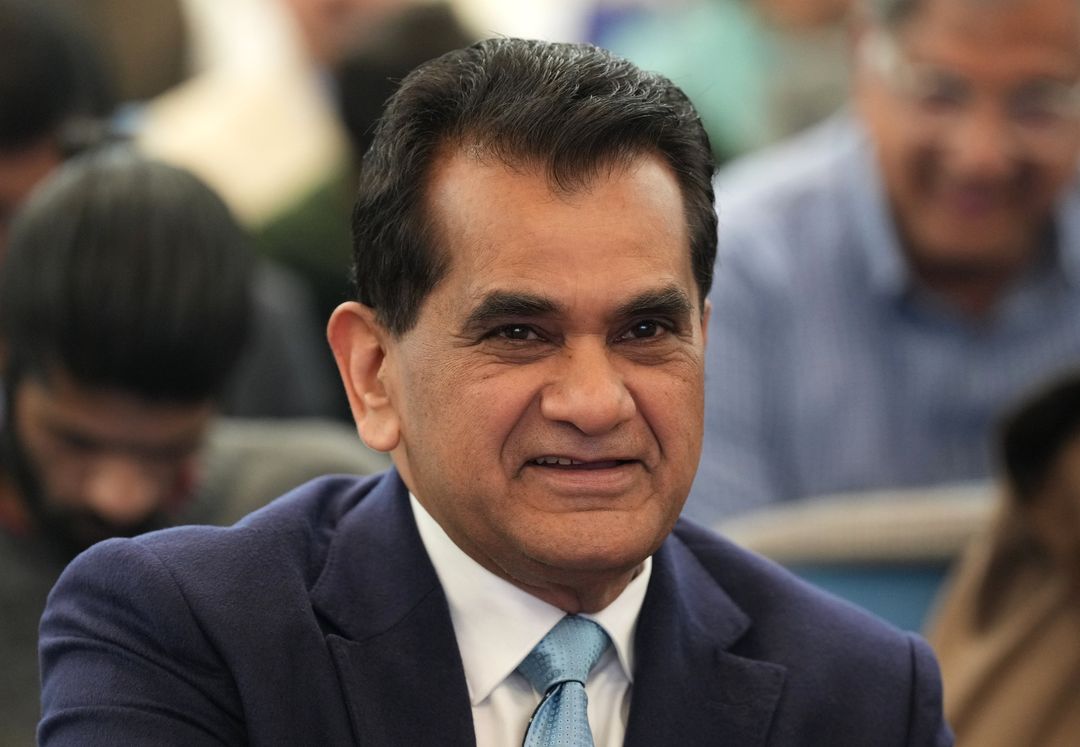Alwar (Rajasthan), February 27 – India has a significant opportunity to position itself as a global leader in clean-tech manufacturing, leveraging ongoing disruptions in global trade, according to India's G20 Sherpa and former Niti Aayog CEO, Amitabh Kant. Speaking at the Centre for Science and Environment's annual Anil Agarwal Dialogue, Kant emphasized that technological advancements could drive India's transformation, provided the nation seizes the moment.
Highlighting India's rapid progress in fintech—exemplified by the Unified Payments Interface (UPI)—Kant urged the country to replicate this success in clean technology. "We must take the lead in manufacturing solar energy solutions, green hydrogen, batteries, and electric vehicles. This is India's chance to surpass 500 GW of renewable energy capacity by 2030. Technological disruptions are inevitable, and India must be at the forefront," he asserted.
"The developing world needs at least $1.3 trillion per year, with a total requirement of $3 trillion to meet both climate and sustainable development goals. Yet, the funding offered by developed nations is grossly inadequate," Kant said.
At the UN climate conference in Azerbaijan last year, developed nations pledged just $300 billion by 2035, an amount India has strongly criticized as insufficient. The Indian government, in its Economic Survey 2024-25, warned that the persistent funding gap could force developing countries to "rework" their climate commitments.
Kant reiterated that emerging economies bear minimal responsibility for the climate crisis. "Developed nations account for 80% of greenhouse gas emissions. Without proper financial support, it is extremely difficult for developing countries to meet their climate goals," he concluded.
With India pushing for a self-reliant clean-tech sector, the coming years will be critical in determining whether the country can capitalize on this global shift or risk falling behind in the race for sustainable energy leadership.
Highlighting India's rapid progress in fintech—exemplified by the Unified Payments Interface (UPI)—Kant urged the country to replicate this success in clean technology. "We must take the lead in manufacturing solar energy solutions, green hydrogen, batteries, and electric vehicles. This is India's chance to surpass 500 GW of renewable energy capacity by 2030. Technological disruptions are inevitable, and India must be at the forefront," he asserted.
Avoiding Import Dependence
Kant cautioned that failing to capitalize on this opportunity would leave India reliant on imports, particularly from China. "If we do not act now, our dependence on clean-tech imports will far exceed what we currently spend on oil," he warned, underlining the economic and strategic risks of inaction.Developing Nations Struggle Amidst Insufficient Climate Funding
Discussing climate finance, Kant criticized the lack of financial support from developed nations, which have historically contributed the most to climate change. He noted that the failure of wealthier countries to meet their commitment of $100 billion annually by 2020 has hindered the ability of developing nations to meet new climate targets."The developing world needs at least $1.3 trillion per year, with a total requirement of $3 trillion to meet both climate and sustainable development goals. Yet, the funding offered by developed nations is grossly inadequate," Kant said.
At the UN climate conference in Azerbaijan last year, developed nations pledged just $300 billion by 2035, an amount India has strongly criticized as insufficient. The Indian government, in its Economic Survey 2024-25, warned that the persistent funding gap could force developing countries to "rework" their climate commitments.
The Race to 1.5°C: A Global Challenge
As countries prepare to submit their next round of Nationally Determined Contributions (NDCs) for 2031-2035, the urgency to curb global warming remains high. The Paris Agreement aims to limit temperature rise to 1.5 degrees Celsius since the Industrial Revolution. However, without adequate financial backing, developing nations face immense challenges in reducing emissions.Kant reiterated that emerging economies bear minimal responsibility for the climate crisis. "Developed nations account for 80% of greenhouse gas emissions. Without proper financial support, it is extremely difficult for developing countries to meet their climate goals," he concluded.
With India pushing for a self-reliant clean-tech sector, the coming years will be critical in determining whether the country can capitalize on this global shift or risk falling behind in the race for sustainable energy leadership.
